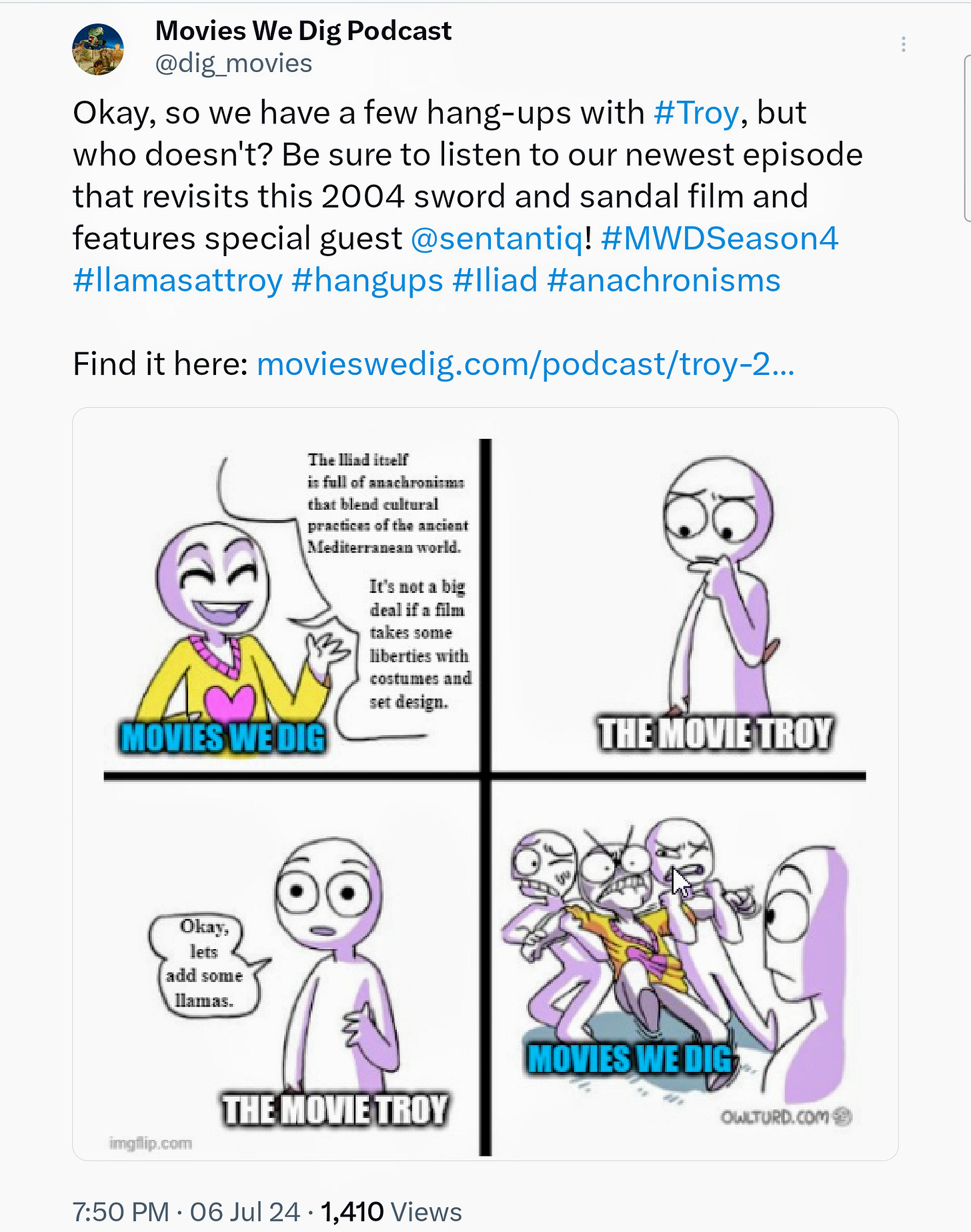As always, this project is free. But any funds it produces are sent monthly to Classics-adjacent non-profits
Some might say that the Homeric Iliad is unfilmable and I wouldn't disagree. (But this is over relying on the word film. I think it could be done well in a 12 to 24 part prestige television show style if anyone wants to hear me pitch it…) The truth is that few have actually tried to tell the story of our poem in any faithful way.
The Iliad is in some ways profoundly visual and the linear way its narrative unfolds lends itself to cinematic storytelling. Yet, as anyone who has cringed witnessing an adaptation of their favorite book can attest to, stories of sound and words become overdetermined when transformed to image. We each fill out the sketches of words in our minds to different extents and with varying images. A full screen full of a scene made up of sentences can be jarring and disrupting to the visions that were preexisting. So dominant is the visual mind, in fact, that a film can supplant the narrative we knew before, distorting it. Even when well done (e.g. Peter Jackson's Lord of the Rings) the new image can exercise a tyrany over the word that is final and alienating.
Fortunately, that is not the case with the 2004 movie Troy, a film that is neither Homer’s epic nor in any conventional sense good. I joined the smart and hilarious crew from Movies We Dig to talk about the movie after 20 years on their podcast. We try to put it in its place and time and make some sense of it. I dare say we were kinder to the film than it was/is to Homer!
If you haven't listened to this podcast, give the crew a try. They are smart, funny, and kind. It is like hanging out with college friends but all grown up, talking about movies over a beer. I have had the good fortune of hanging out with them before, talking about O Brother, Where Art Thou and The Warriors with my real life college roommate Tim Gerolami.
Apologies for the recent lack of posts. We are on vacation. Stay tuned for upcoming posts about Homer in performance and on how epic is like a cathedral.




